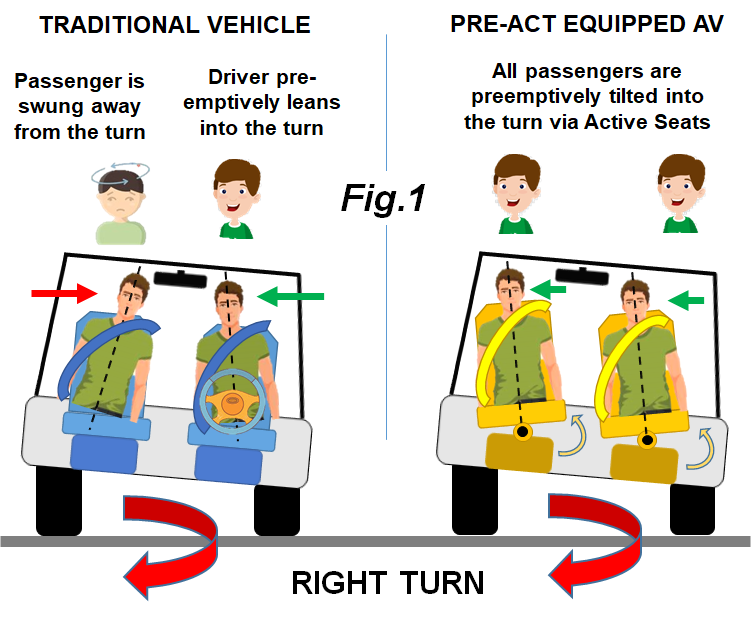Motion Sickness Mitigation in Autonomous Vehicles using Preemptive Control of Active Systems
|
We are actively researching motion sickness mitigation solutions for passengers of autonomous vehicles, especially mitigation solutions that leverage preemptive control of active systems within the vehicle. Autonomous vehicles (AVs) create the opportunity for passengers to perform productive tasks during their commutes. However, motion sickness can be an impeding factor in this transformation as it prevents passengers from performing their tasks effectively. It is estimated that motion sickness afflicts one in three US adults travelling in passenger vehicles. The aim of this project is to design, build, and test a motion sickness mitigation systems such as active seat, active restraint, active passenger stimuli, and active productivity interface. The motion sickness mitigation system leverages big data driven insights and machine learning to determine the optimal commands to control the active systems to improve passenger comfort, productivity, and mitigate motion sickness. Past, on-going, and future projects in this research area include: (1) literature review of the state of the art in motion sickness mitigation, and motion sickness modelling, (2) development of motion sickness simulation models, (3) design, analysis, and fabrication of active seat system, (4) design of experiment, data analysis of experimental results of active seat system on mitigating motion sickness using instrumented anthropomorphic dummy, and (5) human subject validation of the motion sickness mitigation solutions.

|
PUBLICATIONS
| J43. | Jalgaonkar, N., Sousa Schulman, D., Ojha, S., and Awtar, S., 2021, "A Visual-Vestibular Model to Predict Motion Sickness Response in Passengers of Autonomous Vehicles", SAE International Journal of Advances and Current Practices in Mobility, 3(5):2421-2432, DOI: 10.4271/2021-01-0104 |

 HOME
HOME  RESEARCH
RESEARCH